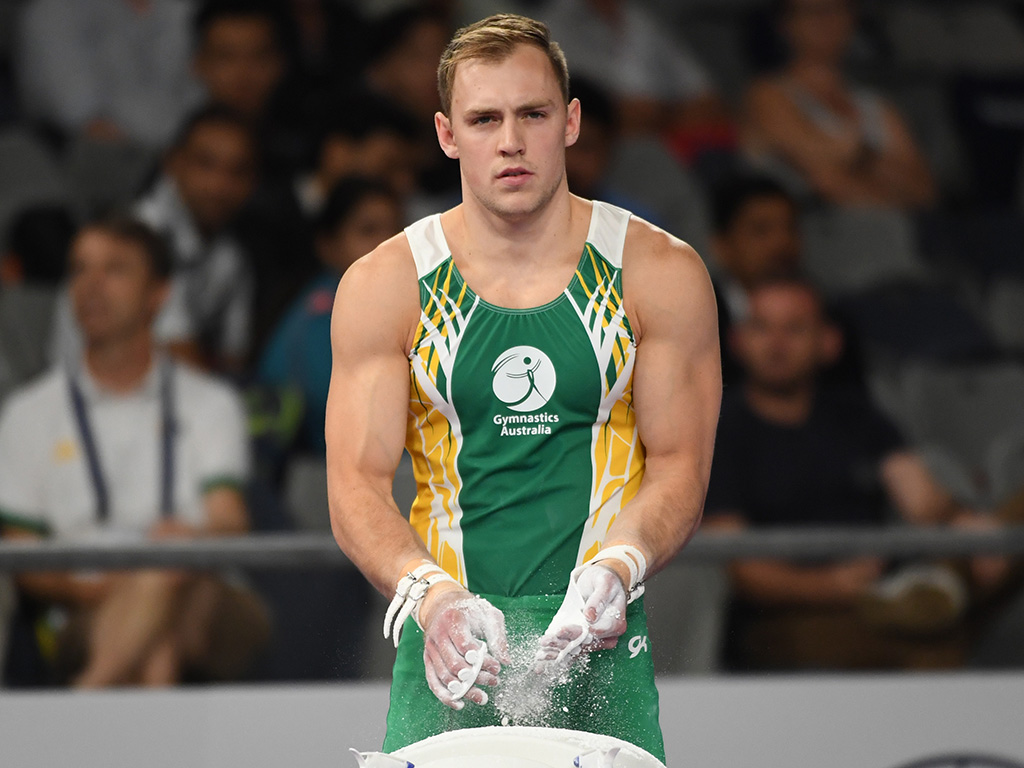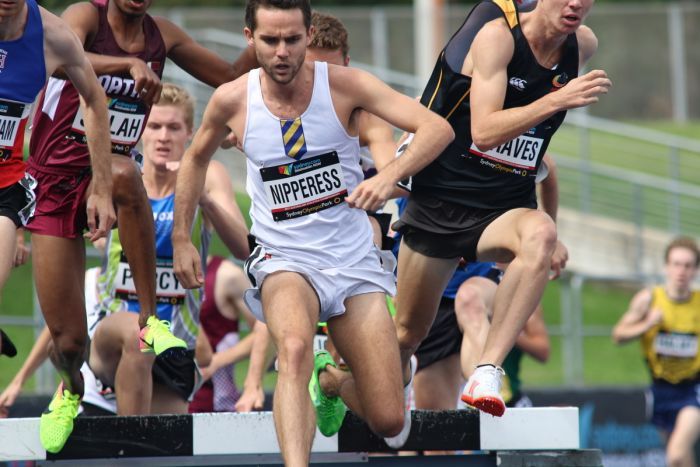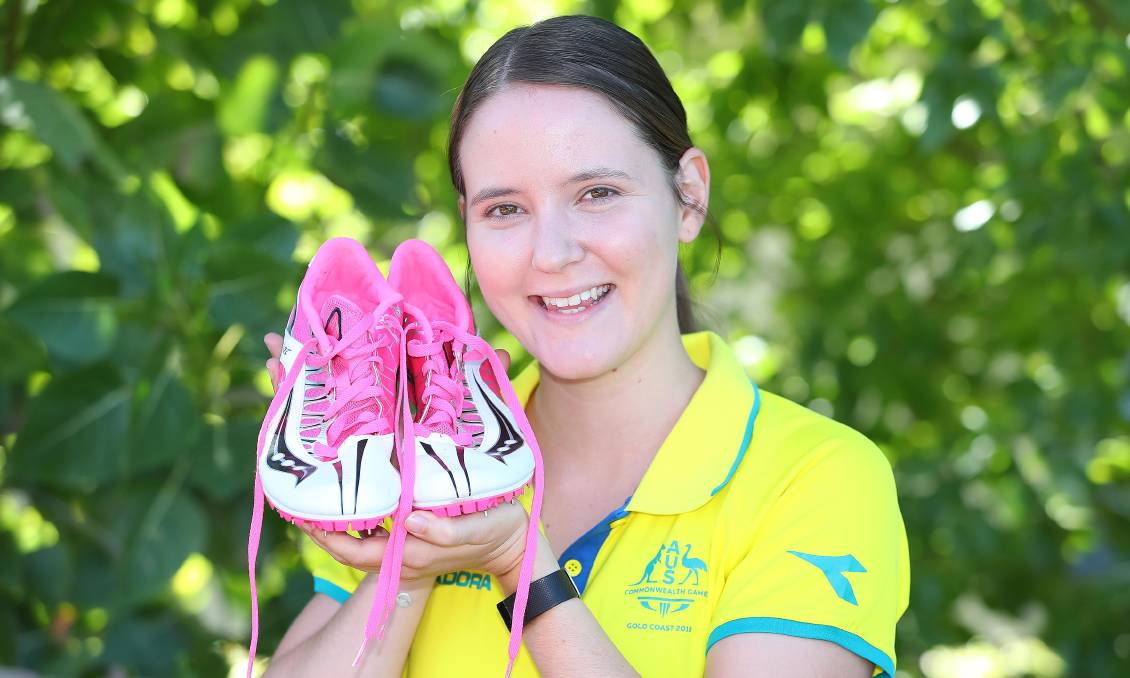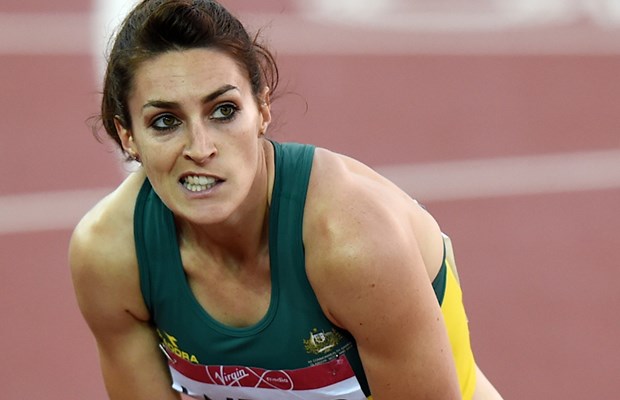Antony Perry
4 April 2018: For elite athletes, there’s nothing quite like competing at a Commonwealth Games on home soil.
Pulling on the official team uniform and streaming into the Opening Ceremony. Swapping into competition gear and stepping onto the hallowed competition surface, the roar of the partisan crowd thunderous and uplifting.
It’s a feeling many of us will never experience, but thanks to a group of talented elite athletes studying at the University of Canberra, we can at least live vicariously.
Several students from the University will don the green and gold on the Gold Coast over the next 12 days during the 2018 Commonwealth Games.
Their involvement represents the culmination of years of hard work. For some, it will be their first Commonwealth Games, while others will return to an event they know well.
Behind every successful athlete is a solid support network and the University of Canberra is dedicated to helping its elite student athletes achieve their dreams beyond the walls of the lecture theatre.
The University is a member of the Elite Athlete Friendly University Network and has agreements with the Australian Sports Commission and the Australian Capital Territory Academy of Sport to support students’ needs.
From providing financial assistance to organising flexible study arrangements, the University enables aspiring and established sportsmen and sportswomen to compete and study.
This year, the University further strengthened its commitment to becoming one of Australia’s leading sporting universities by installing Olympic and seven-time WNBL championship-winning coach Carrie Graf as its inaugural Director of Sport.
In the role, Ms Graf has responsibility for the University’s sporting teams – the UC Capitals and women’s rugby sevens – and manages the university’s participation in Australian university sport programs.
She said the University was committed to fostering an environment that is attractive to students who want to balance study with their sporting commitments and wished the University’s Commonwealth Games representatives good luck on the Gold Coast.
“There’s so much potential for sport to play an even bigger role in university life and we’re working hard to bring the University’s vision of becoming a leading sporting university to life,” Ms Graf said.
“Our students being involved in the Commonwealth Games is proof we are on the right track. We’re so proud of those who will wear the green and gold. It is a wonderful achievement for all of them and testament to their hard work and dedication.
“We’re so happy they call the University of Canberra their university and we look forward to playing a part in their future success.”
Meet some of the University’s Gold Coast-bound elite student athletes and find out why a university degree is just as important to them as representing their country.
Athlete Q&As
Jesse is studying a Bachelor of Politics and International Relations. The Rio Paralympian heads into the 200-metre individual medley as the fastest qualifier and will look to go one better after winning silver in the same event at the Glasgow 2014 Commonwealth Games.

Is this your first time representing Australia? If not, on what other occasions have you represented the country?
This is my fourth time representing Australia. I debuted at the 2014 Commonwealth Games. Having previous experience has been beneficial for my preparation for these home Games, especially given the additional excitement/pressure of being able to compete on home soil. I also competed at the 2015 World Championships and the 2016 Paralympic Games.
How does it feel to know you’ll be representing your country at one of the globe’s biggest sporting events?
It’s always been a dream of mine. The gravity of pulling on the green and gold gets me every time. And this is a home Games, making this event even more special. At times it can be hard to put into words. I’m just keen to get out there, give my absolute best and hopefully do my country proud.
What was involved in the qualifying process?
Qualifying was a long process. Last year I ranked second in the Commonwealth and first in Australia, securing myself a preliminary place ahead of the official Commonwealth Games trials. At the trials in February, I performed strongly and my place in the Australian squad was confirmed.
How have you managed your study load with your training and competition commitments?
Balancing study and sport is tough. Throw in work and travel and it becomes even more difficult. I’ve only recently reached out to the University’s Elite Athletes Unit, but I wish I had done so sooner. Since doing so, I've been able to capitalise on the support services offered which has helped to reduce the stress and allow me to enjoy my course.
Why is studying important to you?
Studying has always been the most important thing to me. It’s the investment that will look after me after my career as an athlete comes to an end. Finding the right balance between study and sport might be tough, but it’s worth it.
Mitchell is studying a Bachelor of Sport and Exercise Science. Gold Coast will be his first Commonwealth Games, but he enters the men’s artistic gymnastics full of confidence after winning a silver medal on horizontal bar at a World Cup event earlier this year.

Is this your first time representing Australia? If not, on what other occasions have you represented the country?
This is not my first time representing my country. I have done so as a junior and more recently as a senior. Last year was a big year for my gymnastics. I travelled all over the world for World Cup series events which were held in Germany, Qatar and Azerbaijan. I also went to World University Games in Chinese Taipei. I finished 2017 at the World Gymnastics Championships in Canada.
How does it feel to know you’ll be representing your country at one of the globe’s biggest sporting events?
I feel so proud to be able to represent my country. To reach this level of competition and compete at the Commonwealth Games is so exciting and I can’t wait to be swinging around the bar.
What was involved in the qualifying process?
The qualifying process was stock standard. I had two trials – the first in December last year and a second at the start of 2018. For me, things went smoothly at both trials and I was glad to be selected.
How have you managed your study load with your training and competition commitments?
Right now, I’m focusing on the Commonwealth Games. That’s my main priority at the moment. My gymnastics career won’t last forever so I’m making the most of it now. This has led me to defer he past two semesters as it is very difficult to maintain decent grades while travelling and competing. Once the games are finished I’m planning to go back to uni.
Why is studying important to you?
I realise that I will not be an elite competitive gymnast forever and there will come a time when I want to start a new chapter in my life. Having a degree will help bring the new chapter to life.
James is studying a Master of Business Administration. On the Gold Coast, he’ll be running and jumping for gold in the 3,000-metre steeplechase. This will be his second Commonwealth Games, after he made his bow in Glasgow in 2014.

Is this your first time representing Australia? If not, on what other occasions have you represented the country?
I ran at the Commonwealth Games in Glasgow in 2014 where I finished ninth. I’m hoping to beat that finish this time around.
How does it feel to know you’ll be representing your country at one of the globe’s biggest sporting events?
To represent Australia in Australia is an honour. I can’t wait.
What was involved in the qualifying process?
I won my fifth Australian Championship over 3,000 metres in the steeplechase (also on the gold coast).
How have you managed your study load with your training and competition commitments?
I will be sitting an exam during the Games in the Athletics Australia training camp. I spend a lot of my down time studying.
Why is studying important to you?
I'm doing this degree because I like it and I want to be successful in business. I’ve always aspired to be successful financially and I feel studying will assist me.
Carly is studying a Bachelor of Primary Education. She will make her Commonwealth Games debut in the T35 100 metre – an event she recorded a personal best time of 15.92 seconds at the London World Para-Championships in 2017.

Is this your first time representing Australia? If not, on what other occasions have you represented the country?
The 2018 Commonwealth Games will not be my first time representing Australia. I was selected to compete for Australia at the 2013 Athletics World Championships in Lyon. Since then, I have also competed at the 2015 World Athletics Championships in Doha and again in London in 2017. This is, however, my first Commonwealth Games.
How does it feel to know you’ll be representing your country at one of the globe’s biggest sporting events?
No words can truly express the feeling of representing my country at the Commonwealth Games. It will be an experience of a lifetime. I am so grateful for the opportunity to showcase my hard work to such a huge audience.
What was involved in the qualifying process?
The qualifying period for the Commonwealth Games was open for a significant period, so there was a lot of opportunities to run a qualifying time. I was successful in recording a qualifying time at the 2017 World Athletics Championships in London which took a lot of pressure off myself leading into 2018.
How have you managed your study load with your training and competition commitments?
I am currently studying part-time, so I can focus on my running. Studying can be hard after a tough training session or competition, but I always find several hours a day to get work done. It’s a great way to wind down and stay on top of my study load.
Why is studying important to you?
I am aware that my sporting career will not last a lifetime and therefore believe that studying is extremely important to ensure I have a successful life away from the track. I also love learning new things as well as the balance study brings in my life.
Lauren is studying a Bachelor of Primary Education. She is a veteran on the international athletics circuit with a career dating back to 2005. She will contest the 400 metre hurdles, 4x 400 metre relay, and long jump on the Gold Coast.

Is this your first time representing Australia? If not, on what other occasions have you represented the country?
Since 2005, I have represented Australia on 14 international teams including:
- World Youth (under 18s);
- World Juniors (under 20s);
- 2 x World University Games;
- 4 x World Championships;
- 2 x Olympic Games; and
- 4 x Commonwealth Games.
How does it feel to know you’ll be representing your country at one of the globe’s biggest sporting events?
Representing Australia is always an honour and something I never take for granted. I know I have had a great athletics career so far and have been able to represent Australia on numerous occasions. The atmosphere at the Melbourne Cricket Ground during the 2006 Commonwealth Games was electrifying and I can’t wait to hear the roar of the crown when I compete on the Gold Coast and know that majority are cheering me on.
What was involved in the qualifying process?
In athletics, there are ‘A’ and ‘B’ qualifying standards which an athlete must achieve between January 12017 and the National Championships which happened in February 2018. Part of the selection criteria is that you must also win the National Championships and achieve either an ‘A’ or ‘B’ standard to be automatically selected. I ran several ‘A’ qualifiers this season and won my 11th National 400 metre hurdles title, so I was thrilled to be automatically selected for the hurdles. I also competed in the Long Jump at the National Championships, where I placed third. I was very excited to be named as one of the three long jumpers to represent Australia at these Games.
How have you managed your study load with your training and competition commitments?
I am in the final semester of my Bachelor of Primary Education degree and have two units to complete. This has been very manageable alongside all my training in preparation for the Commonwealth Games. In a typical week, I only have class on two days. I work another two days as a learning support assistant in a primary school and have five track and two gym sessions around that. Over the years, I have become quite good at managing my time and I like to be organised, so I am able to fit everything in. My athletics coach, Matt Beckenham, is very flexible with training times so that makes things easier as well.
Why is studying important to you?
Studying is important to me because it is another outlet, away from the track, that I can put my energy into and achieve something I have worked hard for. In 2010, I completed a Bachelor of Science in Psychology and am about to complete my Bachelor of Primary Education. They have provided me with the opportunity to meet new people, collaborate on assignments and work towards life after sport. When I was finishing Year 12, my coach advised me that it would be beneficial to have something to focus on away from the track and something to fall back on, once my athletics career is over. This was some of the most valuable advice I have ever received and I am thankful to have had supportive people around me to help balance my commitments.




